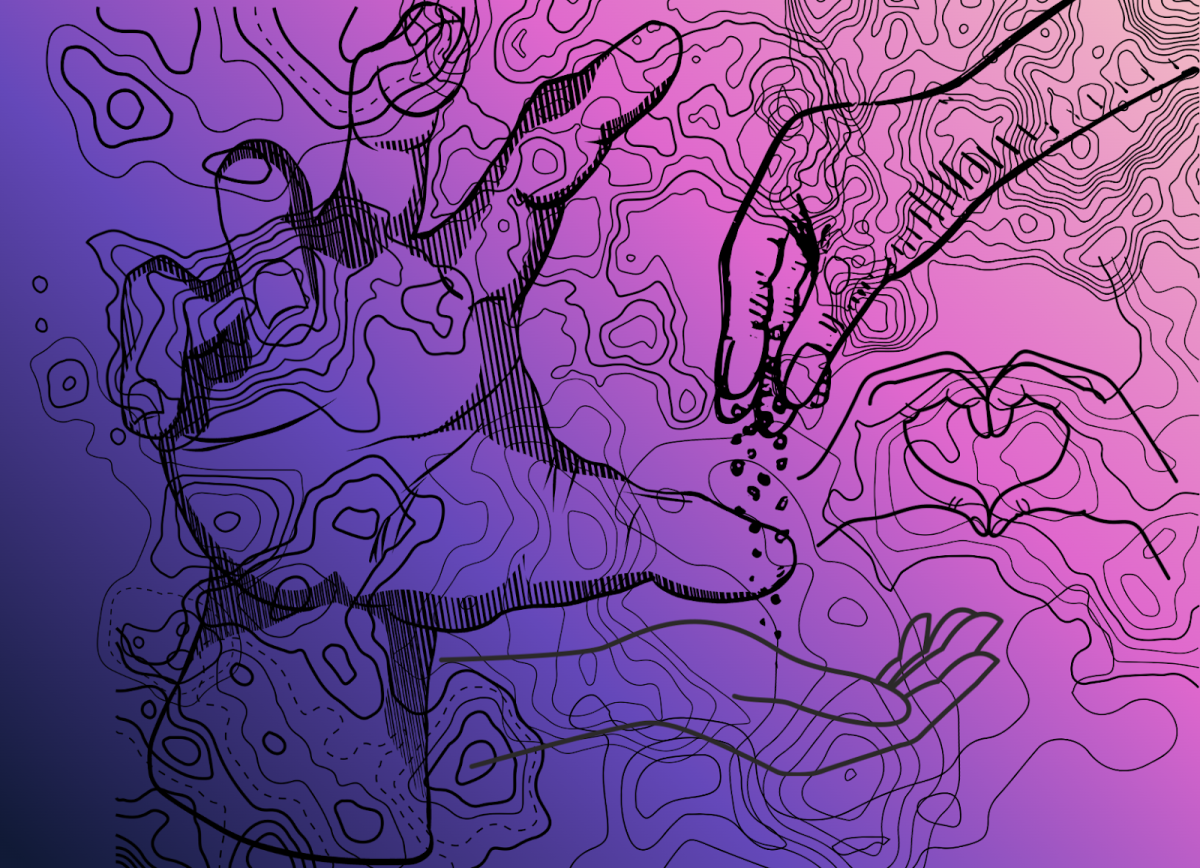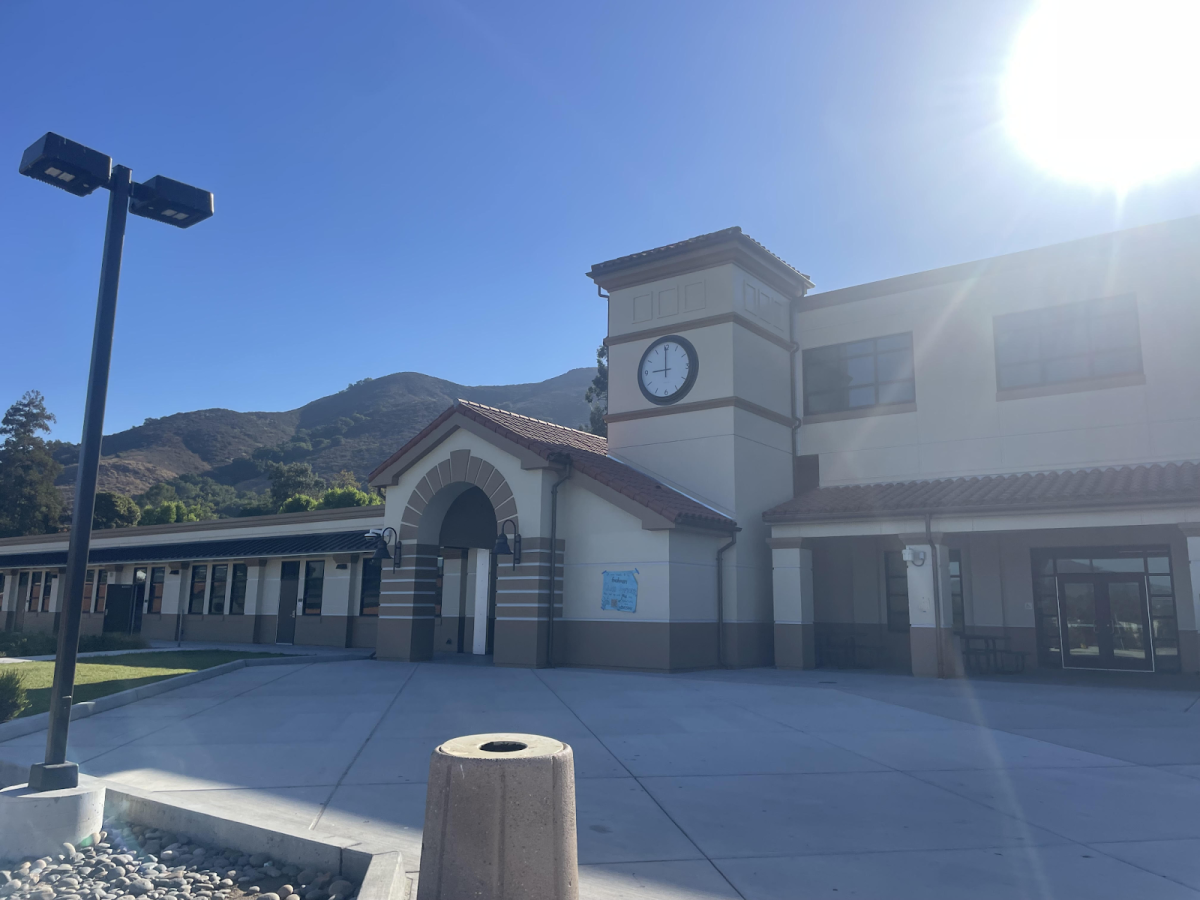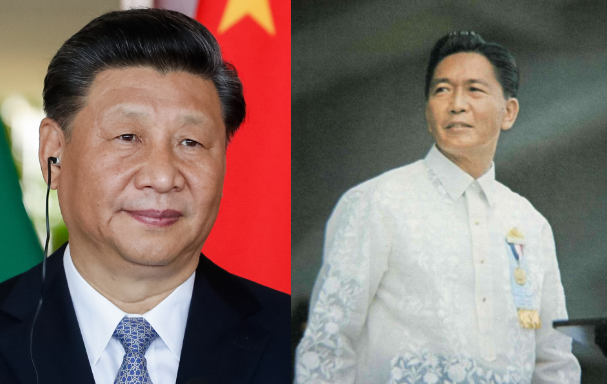Two symbols of hate, or heritage. Photo courtesy of Alan Santos (left) and Philippine Presidential Museum and Library (right).
San Luis Obispo High School students sometimes belong to immigrant communities, and because of that they have to deal with obstacles other students don’t. One of the most difficult things for a student that is a part of one of these communities to deal with is when their family’s country of origin makes the news for the wrong reasons.
When situations like this happen it often leads members of that community to support authoritarian and human rights violating governments.
An example of this happened last week when Xi Jinping landed in San Francisco for the Asia Pacific Economic Cooperation (APEC) conference. There, he was met with some of his Chinese-American supporters.
Immigrant communities supporting dictatorships happen for many reasons.
1. Racism associates a government with a culture:
One of the major ones is that xenophobia and racism sometimes are used by people criticizing another country’s government. That racism also attacks communities in the United States.
Since immigrant communities feel attacked by that criticism, naturally their response is to defend themselves and that government. The actions of that government aren’t relevant to them because for them racism turned a debate around a government’s actions into a defense of one’s identity.
2. Immigrant communities look at their home country through “heart shaped glasses.”:
For these communities, these dictatorships don’t represent tyranny, but the blissful ignorance of childhood.
Also, because these communities are isolated, due in part to racism, they hold on to their identity, and that identity often comes with their home country’s government, in these cases an authoritarian government.
Immigrants feel as if for their home country, any publicity is good publicity. Therefore when their home country makes the news, it brings up feelings of pride.
In my experience:
When Ferdinand Marcos Jr.(Bong Bong Marcos) was running for president in the Philippines I wanted to advocate to my family members to not vote/support him. However, to my surprise, many of my family members strongly supported him.
For context, his father ruled the Philippines under martial law for years, suppressing freedom of speech, jailing, executing, exiling political opponents and critics, and stealing billions of dollars from the government.
But for them the Marcos regime didn’t represent this. The Marcos’ stolen wealth displayed their family like royalty. Thus, the Marcos’ represented wealth and prosperity.
Also, the Marcos’ ruled when many Filipino immigrants in the U.S. were children, so they likely have fond memories of the Marcos’ rule.
Most importantly, Ferdinand Marcos represented almost an ideal Filipino, someone wealthy, cultured, and with power. His family had all the glamor that European monarchs had, an image Filipinos were hungry for, especially after hundreds of years under Spanish and American rule.
Marcos was central to their identity, thus criticism of his rule fell on deaf ears.
My family’s support of the Marcos family made it difficult to advocate for what I believed was right. A struggle many immigrants, and children of immigrants also have to deal with.
A few people’s beliefs also don’t represent an entire community. There are plenty of Filipino-Americans with strong beliefs against the Marcos family.
Similarly, Xi Jinping was also met with Chinese-Americans protesting the CCP’s policies and control.
Immigrant communities are complex, and acknowledging that goes a long way.
Sources:wikimedia.org
































